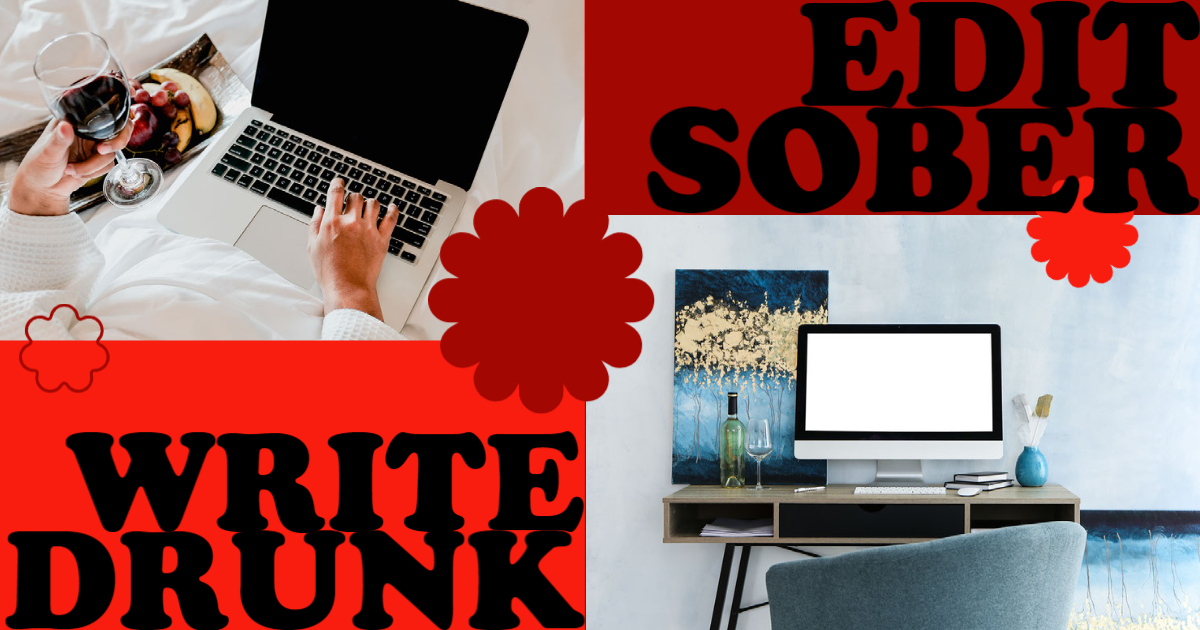The surprisingly useful writing advice (that doesn’t actually require alcohol)
There is a lot of writing advice out there.
Write every day at 3 a.m.! Write on an old typewriter! Subscribe to this writing class for only $99.95! Write at least two thousand words a day! (Calm down, Stephen King.) Buy this expensive notebook for inspiration and then never write in it because it’s too much pressure! (That one’s from me.) While it’s hard to figure out what’s useful and what’s useless in the world of writing guidance, there is a bit of advice that connects many of the most successful writers in the world: Write drunk, edit sober.
Yep! This succinct bit of advice (credited to the perpetually-drunk Ernest Hemingway) packs a surprisingly strong double-shot of usefulness, and you don’t actually have to drink a damn thing to use it.
Here, I’ll translate: Write without inhibitions; edit full of them. When it comes to writing your first draft, just write it. Spit it out. Don’t censor yourself. That voice inside your head that stops you every time you start to put pen to paper (or fingers to keys)—the one that tells you your ideas aren’t good enough, the words aren’t right, a “real writer” would know what to do with all your jumbled ideas—tell that fool to shut up! There is no “real writer,” and there is no perfect first draft. You can’t turn your ideas into a well-crafted book while they’re still floating around in your head. As V.E. Schwab (author of many wildly successful books Wildling can personally recommend, like Vicious and The Invisible Life of Addie LaRue) has said, “You can’t write a book right until you write it wrong.” This means you don’t write a great book--you just write, then you make the book great through editing. Even Neil Gaiman, one of the most prolific, successful, and imaginative writers of our time, has repeatedly told his fans, “The process of doing your second draft is the process of making it look like you knew what you were doing all along.” It’s only after you’ve spilled all your ideas onto paper that you begin the tough, slow, sometimes sobering work of editing. Most of your favorite authors, from those we study in school to cult favorites and guilty pleasures, are great at pouring out the first draft with some version of wild abandon, and then editing that mess meticulously--sorting, organizing, rearranging, cutting, and reworking it until it’s the carefully crafted finished piece their readers fawn over. Great writing may read like magic, but it actually took a lot of regular, sometimes painful, sometimes boring, sometimes bad (and yes, sometimes drunk) human work to make it. So whether you need a swig of good whiskey to help you loosen up or not, just remember: write like there are no rules--save those for the second draft. Stretch your fingers, shake those doubts from your mind, and write with the untethered audacity of a drunk Ernest Hemingway. You won’t regret it. by Mary-Peyton Crook
0 Comments
|
How Do I Book?We'll try to find the answer to that question in our blog. Archives
August 2023
Categories
All
|


 RSS Feed
RSS Feed